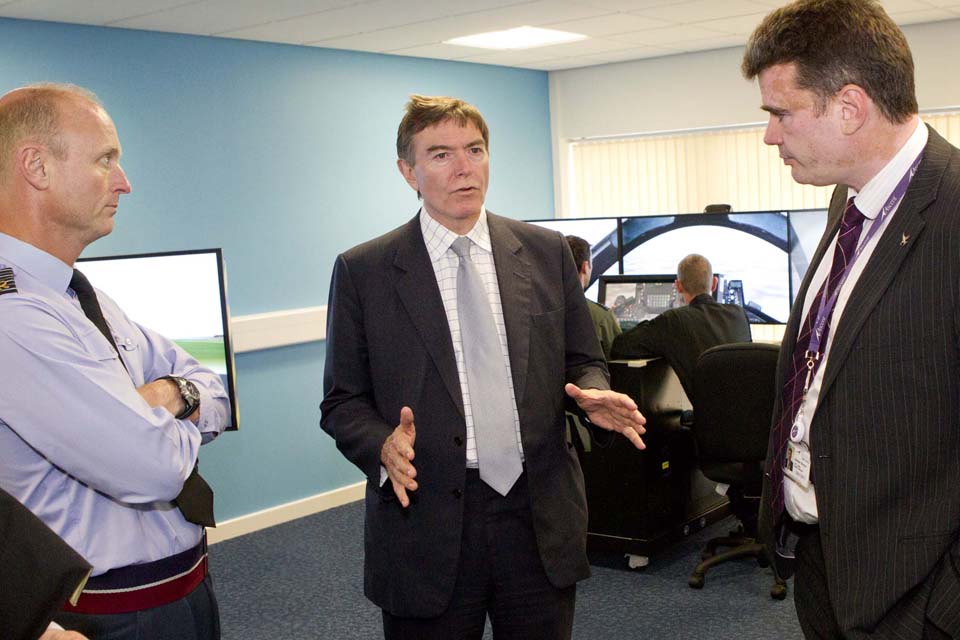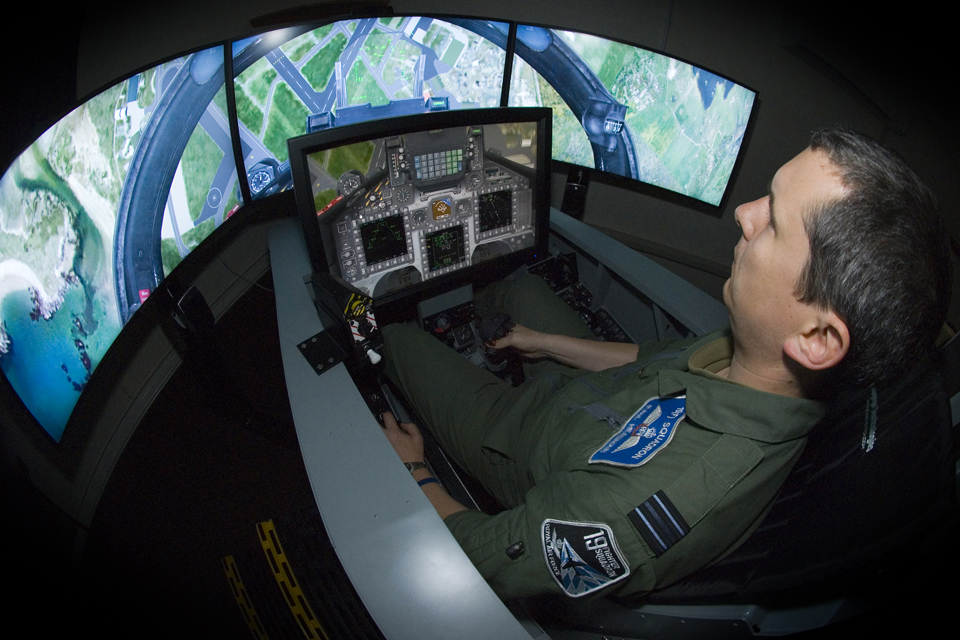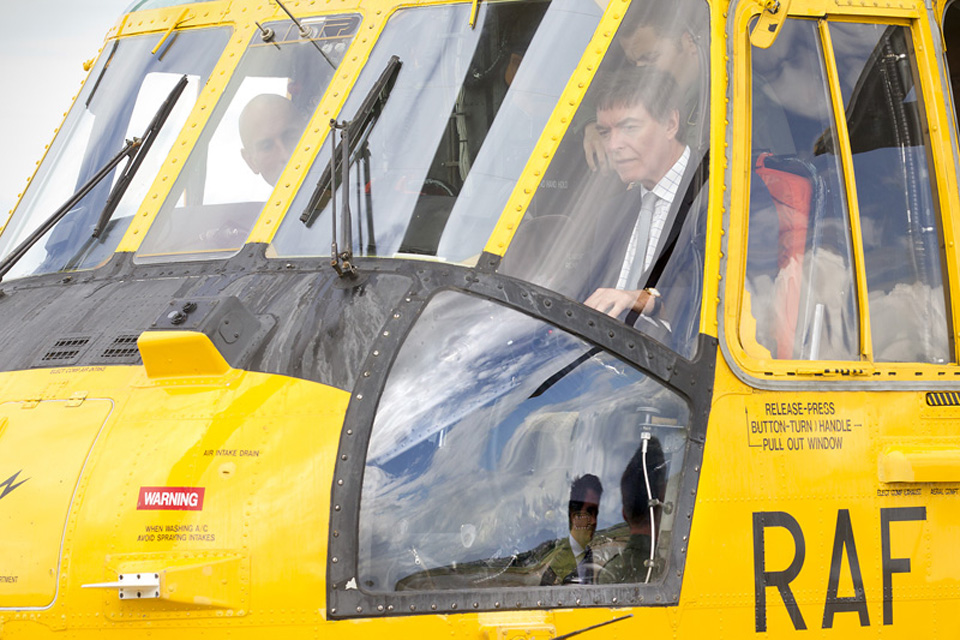Minister visits futuristic jet pilot training facility
Defence minister Philip Dunne has visited RAF Valley in Anglesey to see how military fast jet pilots of the future are being trained.
![An RAF Hawk T2 fast jet training aircraft lands at RAF Valley (library image) [Picture: Corporal Paul Oldfield RAF, Crown copyright]](https://assets.publishing.service.gov.uk/media/5a60d46840f0b65266e78d38/s300_VAL-011-388-OUT-U-041.jpg)
An RAF Hawk T2 fast jet training aircraft lands at RAF Valley
One of the roles of RAF Valley is to provide advanced fast jet training, producing world-class combat pilots for the RAF, Royal Navy and international partner air forces.
During his visit, Mr Dunne, the Minister for Defence Equipment, Support and Technology, saw first-hand how students of 4 Squadron capitalise on the benefits of the synthetic training environment, from mission planning to the detailed debriefs drawing on the wealth of information assimilated during live flying.
Mr Dunne said:
I was delighted to see the highly sophisticated flying training system which was introduced last year at RAF Valley.

Left to right: RAF Valley Station Commander, Group Captain Adrian Hill, Defence Minister Philip Dunne, and Mr Al Shinner of Ascent [Picture: Senior Aircraftman Mark Dixon, Crown copyright]
The innovative UK Military Flying Training System (UKMFTS) brings together the Hawk T2 aircraft, qualified RAF flying instructors and cutting-edge flight and mission simulators to ensure the next generation of fast jet pilots are fully prepared for their transition to the front line:
The extensive use of synthetic training means that every flying hour is more productive than before and makes this entire programme more cost effective for the United Kingdom,” said Mr Dunne. “It also reduces the time taken to familiarise pilots with flying a combat aircraft when they move to an operational role.
The training system at RAF Valley combines military instructors and a primary civilian contractor, Ascent, to deliver a cost-effective range of synthetic training on the ground, using a range of simulators. The advanced cockpit of the Hawk T2 closely resembles that of current and future combat aircraft such as the Typhoon, the Tornado GR4 and the Lightning II.

An RAF airman demonstrates a Hawk T2 fast jet simulator at RAF Valley (library image) [Picture: Corporal Paul Oldfield RAF, Crown copyright]
Group Captain Adrian Hill, RAF Valley’s Station Commander, said:
Each student covers a much wider syllabus than ever before, delivering a more proficient fast jet pilot to front line operational conversion units in preparation for their future operational role.
The Hawk T2 is an integral part of the UKMFTS, a training system that enables a significant download of training from front line aircraft to more inexpensive training platforms and synthetic training systems.
The minister has seen how we, military and contractor, work together to produce some of the finest combat pilots in the world. Our students leave here extremely well prepared for the challenges they will face on the front line.

Mr Dunne is shown around the cockpit of an RAF Sea King search and rescue helicopter at RAF Valley [Picture: Senior Aircraftman Mark Dixon, Crown copyright]
During his visit, Mr Dunne also thanked the locals of Anglesey who continue to support the RAF in their crucial flying training activity, and the vital search and rescue service provided by 22 Squadron.